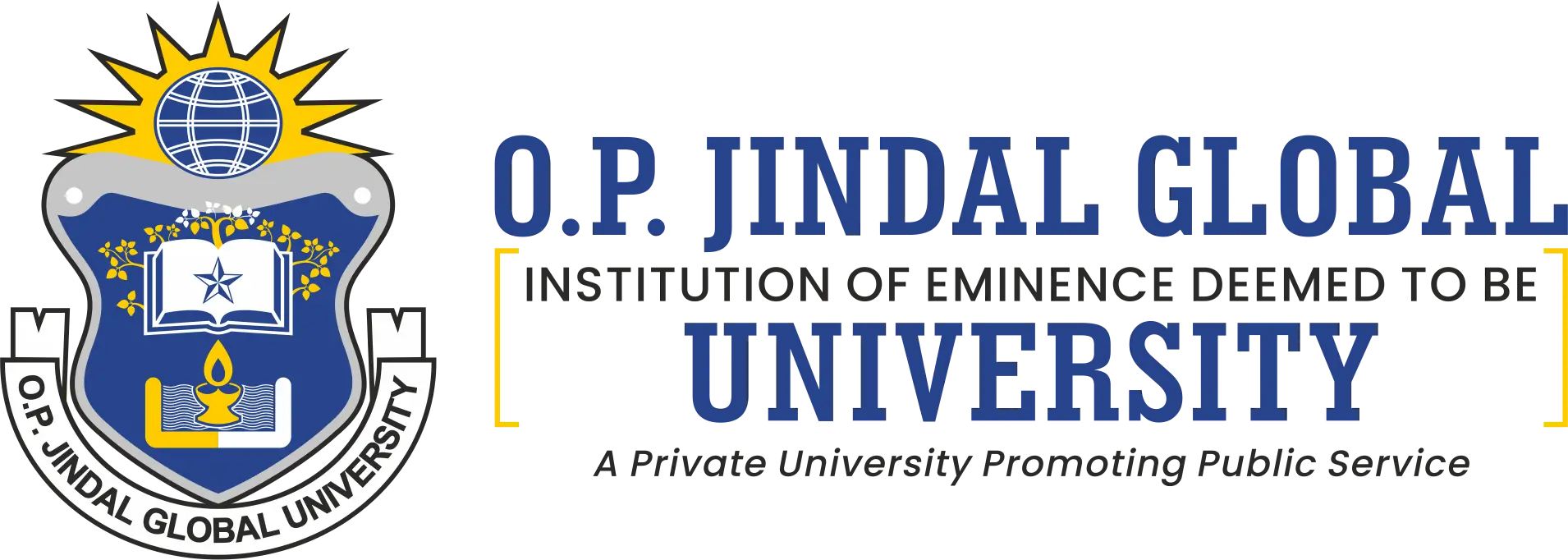- Discover JGU
- Founding Chancellor
- Founding Vice Chancellor
- Registrar
- Governing Council
- Ombudsperson
- Academic Leadership
- Administrative Leadership
- Office of International Affairs & Global Initiatives
- Jindal Institute of Leadership Development and Executive Education (JILDEE)
- Rankings & Recognitions
- University Professors
- Interdisciplinarity
- Office of Interdisciplinary Studies (IDEAS)
- Office of Academic Planning, Co-Ordination and Interdisciplinarity (APCI)
- IDEATE Lab (Innovation, Design Thinking, Entrepreneurship, Acceleration, Technology and Experimentation)
- The O.P. Jindal Heritage Centre
- The JGU Story
- The International Mooting Academy for Advocacy, Negotiation, Dispute Adjudication, Arbitration & Resolution (IMAANDAAR)
- The Constitution Museum & The Rights and Freedoms Academy

- STUDY AT JGU
- ADMISSIONS
- RESEARCH & PUBLICATIONS
- Naveen Jindal Young Fellowship
- The Office of the Dean of Research
- Research Centres
- Jindal India Institute
- Jindal Institute of Behavioral Sciences (JIBS)
- International Institute for Higher Education Research & Capacity Building (IIHEd)
- The Motwani Jadeja Institute for American Studies
- Jindal Institute of Haryana Studies
- Endowments
- The Cyril Shroff Centre for AI, Law and Regulation

- CAMPUS LIFE
- CAREER & EMPLOYABILITY
- About Us

